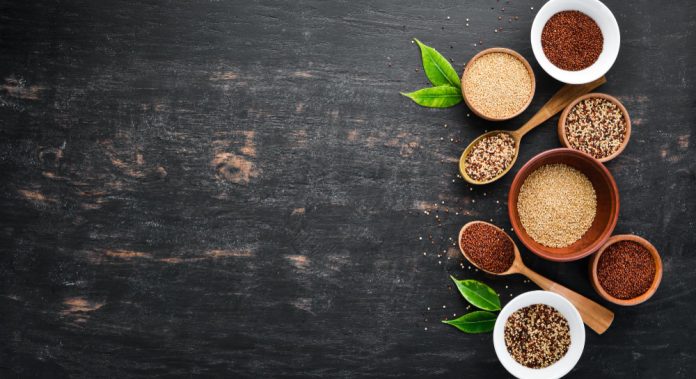Millet is often considered a superfood due to its impressive nutritional profile. Millet is a gluten-free whole grain that is rich in fiber, protein, vitamins, and minerals. It is an excellent source of magnesium, phosphorus, and manganese and also contains high levels of antioxidants. Additionally, millet is low in fat and has a low glycemic index, which means it may help regulate blood sugar levels.
However, it’s important to note that the term “superfood” is not a scientific term and is often used to describe a variety of nutrient-dense foods. While millet is certainly a nutritious food that can provide numerous health benefits, it’s not a magical cure-all and should be consumed as part of a balanced diet.
PC: Freepik
There are several advantages to including millets in your diet:
- Rich in Nutrients: Millets are a good source of essential nutrients, including fiber, protein, B vitamins, iron, magnesium, potassium, and zinc.
- Gluten-free: Millets are gluten-free and are an excellent grain option for people who are sensitive or allergic to gluten.
- Low glycemic index: Millets have a low glycemic index, which means they are digested slowly and help regulate blood sugar levels.
- May reduce the risk of chronic diseases: Millets contain antioxidants, which may help reduce the risk of chronic diseases such as heart disease, cancer, and diabetes.
- Easy to digest: Millets are easily digestible and can help soothe digestive issues such as bloating, constipation, and diarrhea.
- Versatile: Millets can be used in a variety of dishes, such as porridge, soups, salads, and baked goods, making them a versatile ingredient to include in your diet.

PC: Freepik
While millets are generally considered a nutritious food, there are a few potential disadvantages to consider:
- Anti-nutrients: Millets contain anti-nutrients such as phytic acid, which can interfere with the absorption of some minerals like iron and zinc. However, soaking, sprouting or fermenting millets can reduce the level of these anti-nutrients and improve their mineral availability.
- Digestive issues: Some people may experience digestive issues such as bloating, gas or diarrhea after consuming millets. This is usually due to the high fiber content of millets, which can be difficult for some people to digest. If you experience these symptoms, it may be best to start with small amounts and gradually increase your intake to help your body adjust.
- Oxalates: Millets, especially finger millet, contain high levels of oxalates which can form kidney stones in people who are prone to them.
- Low in certain nutrients: Although millets are a good source of many nutrients, they are relatively low in certain essential amino acids like lysine, and vitamins like Vitamin A and D.
Overall, while there are some potential disadvantages to consuming millets, these can often be mitigated by careful preparation and balanced consumption. It is always advisable to consult a healthcare professional if you are unsure if millets are a good addition to your diet.






